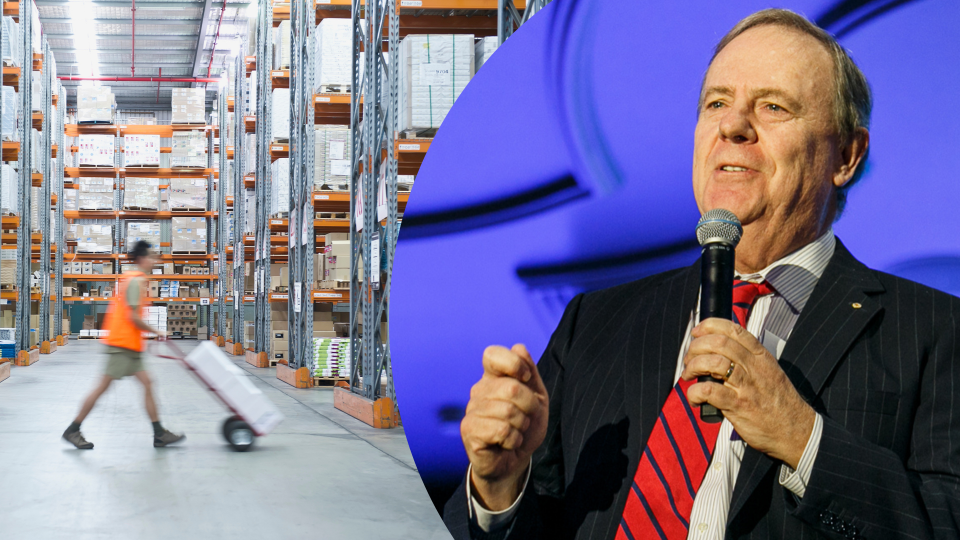Peter Costello: AI concerns keep Aussies from pushing for pay rises

As Australia struggles with slowing productivity, the country’s longest-serving federal treasurer, Peter Costello has pointed the finger at the artificial intelligence revolution.
Related story: Has Australia had a hidden recession? Peter Costello thinks so
Related story: Have humans hit peak productivity?
Related story: The industries hardest hit by economic downturn
Speaking at Yahoo Finance’s All Markets Summit in Sydney, Costello said Australia’s low productivity growth has been a problem for more than a decade, mirroring similar growth around the world. And this low growth is leading to stagnating wage growth.
Australia’s expected economic growth for this year was today downgraded from 2.1 per cent to 1.7 per cent by the International Monetary Fund, after the Australian Bureau of Statistics recorded Australia’s lowest Gross Domestic Product (GDP) growth since the Global Financial Crisis.
“When I was in government, basically wages were at 4 per cent, inflation grew at 2 per cent, real wages were up 2 per cent,” Costello said.
“But you can only sustain that if your economy's becoming more productive over time. I think there's a productivity issue here.
“The weird thing is with all of this ICT and all of this automation you would expect the world would be getting a huge productivity boost and yet we're not seeing it.”
This is because workers are feeling more precarious in the face of increased automation, Costello hypothesised.
According to a report by Oxford Economics, 20 million manufacturing jobs will be lost to robots by 2030.
And Tesla chief Elon Musk has also said AI will make jobs “kind of pointless”.
“AI will make jobs kind of pointless," Musk said.
"Probably the last job that will remain will be writing AI, and then eventually, the AI will just write its own software."
But Swinburne University’s Dr Sean Gallagher believes the key to staying relevant in an increasingly automated landscape is your humanity - not tech skills.
“In increasingly digital environments, we need to be increasingly human in order to be able to compete, and to work effectively,” Gallagher said.
Continuing, Costello said the one major thing digitisation and AI have done is “make people feel more precarious in their jobs”.
“And because they feel more precarious they don't feel they can go for wage rises. ‘The world's changing around me, if I go for a wage rise I might lose my job’,” Costello said.
There’s a term for this, he added: the ‘precariat’.
But because of this challenge, attempts to boost productivity need to extend beyond interest rate and fiscal policy - there need to be genuine reforms.
“The secret to wage rises is productivity. Productivity will require quite a bit of reform in the economy. I think we're getting to the end of useful life on interest rate policy and even on fiscal policy. These are always cyclical fixes and we ought to take our eyes back to the longer term fixes of productivity and structural form.”
Make your money work with Yahoo Finance’s daily newsletter. Sign up here and stay on top of the latest money, property and tech news.

 Yahoo Finance
Yahoo Finance 
